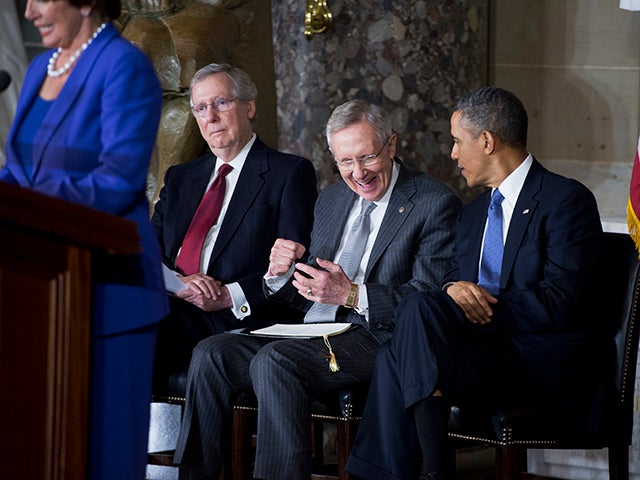
The Obama Administration and some members of the U.S. Senate have made aid to Ukraine contingent on the passage of an IMF reform package. A review of this reform package and its relation to the Ukraine (hint: zero) is critical.
What Is the IMF?
Established at the end of World War II by the Allied Powers (led by the United States), the International Monetary Fund was part of a larger plan to rebuild economies devastated by the war. The allies also sought to construct a framework for economic cooperation, thereby avoiding a repetition of the mistakes that had contributed to the Great Depression. Today, the world is far less dependent on IMF lending than it was 60-plus years ago. For instance, developing countries can access loans from private banks and work to attract foreign investment. In fact, the amount of private capital flowing around the world in 2014 dwarfs the funds available from the IMF.
Still, the IMF does contribute to the stability of the international monetary system. When developing countries get into financial trouble—usually because of reckless government spending—IMF procedures require that any loans made to these countries be accompanied by fulfillment of strict “conditions” that must be met before IMF funds can be disbursed. These IMF “conditionality” agreements have had some success at forcing spendthrift nations into living within their means.
What Is the IMF Reform Package?
In late 2010 the IMF Executive Board, with strong behind-the-scenes support from the Obama Administration, proposed a series of reforms that would increase the voting power of certain emerging market nations. Additionally, these reforms would double the amount of member countries’ national “quota” contributions—the primary source of funding for IMF loans. The higher “quota” levels would come from shifting certain special “emergency account” funds over which the United States has had more control. Loss of U.S. control over these “emergency account” funds could also expose U.S. taxpayers to billions of dollars in additional financial liability from morally hazardous IMF loans (e.g. to Greece).
The reform package would also change the rules for IMF Executive Board elections, and the U.S. would lose its current right to appoint its own representative to the board—the epicenter of power at the IMF.
Instead, under the new rules, the U.S. executive director would have to be elected and, if enough other countries were opposed to the person nominated by the U.S., it is possible that a future American President might not be able to name someone to the IMF who shared his or her political and economic philosophies.
The U.S. has the largest quota of any country in the world, as well as the largest single-nation IMF voting share (16.75 percent). It has also been the only country in the world with veto power at the IMF. Due to the constitutional role of Congress, and the U.S. veto power, Congress must therefore approve this IMF reform package before it can go into effect.
Why Do Some Conservatives Oppose the IMF Reform Package?
Attaching the IMF reform package to legislation to provide U.S. assistance to Ukraine is harmful to the U.S. The two issues are unrelated: the IMF has more than sufficient funding to lend Ukraine the amount needed to avoid economic collapse and implement reforms based on IMF “conditionality” without making any changes to the IMF governance structure.
The IMF reform package would also diminish U.S. influence in the IMF, reducing our ability to control the IMF’s decisions and removing U.S. veto authority over the funds. Incredibly, the reform package would also increase Russia’s power at the IMF at the very time when the U.S. is seeking to punish Russia for its act of war and aggression in Crimea.
Why Are the IMF Package and Aid to Ukraine in the Same Legislation?
The IMF reform package will have no impact whatsoever on the eventual level of U.S. bilateral aid to Ukraine, nor will it have much impact overall on total IMF lending to Ukraine. Nevertheless, the Obama Administration, along with members of Congress from both parties, are exploiting the urgent need to help Ukraine by seeking to attach to the Ukraine legislation the broader and unrelated IMF reform package.
The actions by the Obama Administration and the U.S. Senate to connect these unrelated issues in one piece of legislation represents a corruption of the congressional process, and that legislative body’s failure to deal with the Ukraine issue on its own merits.

























